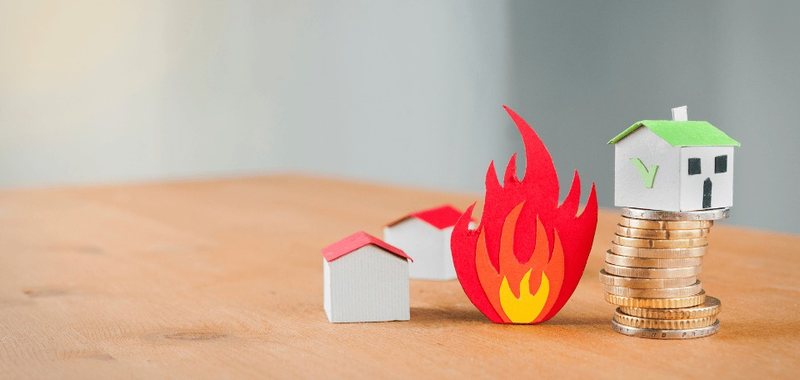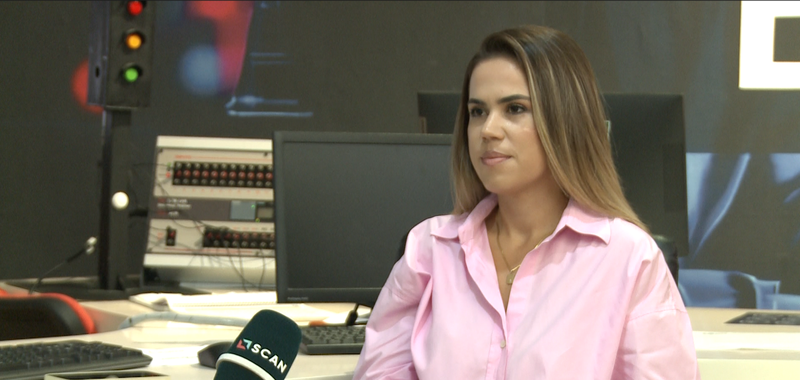High temperatures "burn" electricity bills - Climate change, electricity consumption in summer has increased by 38%

Albania is facing increasingly hot summers, which has led to an increase in household electricity consumption. Official data shows that during the months of June, July and August, these consumers significantly increased their energy consumption from 2018 to 2024, and a good part of this increase is related to climate change and the increasing use of air conditioners.
According to data analyzed by TV SCAN, average household electricity consumption in the months of June, July and August of the last 6 years has increased by 38%.
In June, the average electricity consumption increased by 25% from 2018 to 2024. More specifically, in June 2018, household consumers consumed about 186 thousand mWh, while in 2024, about 232 thousand mWh.
The highest increase was recorded in July, at 46%. According to official data, in 2024, household consumption was recorded at around 280 thousand mWh, up from 192 thousand mWh consumed in 2018.
Meanwhile, in August, the increase is estimated at 43%. For this month in 2018, households consumed about 211 thousand mWh, while in 2024, about 301 thousand mWh.
According to a study by the Energy Regulatory Authority on electricity consumption and consumer behavior, an average of 37% of a family's annual energy consumption goes to just two end uses: space heating and air conditioning. This segment also accounts for the highest consumption value, compared to other appliances, such as washing machines, boilers, electric stoves, refrigerators, lighting, etc.
ERE clearly links energy consumption to the season, and climate change is one of the main factors affecting it during the summer, as this has led to an increase in the use of air conditioners.
"The climatic conditions of our country, with very hot and dry summers, have led to an increase in the use of air conditioners for cooling homes in recent years. Their presence affects the profile of the load graph for the summer season, with a year-on-year increase in daily electricity consumption nationwide," the study states.
This trend was also confirmed by the Population and Housing Census data. The 2023 Census showed a 27.5% increase in households that have installed an air conditioner, compared to the 2011 Census data.
Even for 2025, data from the General Directorate of Customs shows an increase in demand for these devices and that in the first 5 months of the year alone, air conditioners worth 3.47 billion lek were imported, corresponding to about 3.8 million kg. Compared to the same period last year, imports have increased by 411.6 million lek, while in weight by 840 thousand kg.
The increase in demand for these devices is also explained by the changing living conditions of citizens.
"During the summer season, in the months of July and August, the peak trend is increasing, which is becoming more visible from year to year and is related to climate change and improving living conditions. This is leading to the ever greater use of air conditioning equipment during the hot months ," argues ERE.
The electricity consumption for air conditioning depends on the space, the thermal insulation of the environment where the air conditioner is located, as well as the technology class of this device.
“Air conditioning accounts for a much smaller share of household electricity use in apartments than in single-family homes. Apartments are generally smaller than single-family homes, and they are often partially isolated from adjacent apartments. An average family living in a detached house consumes nearly three times as much energy as a family living in an apartment building with five or more apartments,” the study says.
More consumption means higher electricity bills.
Therefore, in these conditions, energy efficiency is considered one of the few options to reduce consumption without polluting the environment. The benefits that come from applying thermal insulation to buildings or equipment with low energy class are great not only for reducing bill costs, but also for the environment and health.
In a report prepared by the environmental organization All Green Centre, which studied an apartment in the city of Korça, it was concluded that after thermal insulation interventions, the apartment would reduce by 67% the amount of wood for heating, emissions into the atmosphere and the use of forests for wood in winter. Although the analysis includes a reduction in energy bills during the winter, the report emphasizes that thermal insulation allows indoor environments to remain cooler in the summer, despite the heat and high external temperatures. Consequently, this reduces consumption and significantly reduces electricity bills.
In addition to better insulation of homes, experts often recommend the use of air conditioners with energy class A+ or thermostat temperatures of 26–27°C.

Record fire damage, over 45 thousand hectares burned - Who will cover it? In 2025, only 31 thousand insurance contracts. The main burden, the state
With around 90 fires and over 45,000 hectares of burned area since the beginning of the year, the fire situation in Albania has spiraled out of control.......

Penalties for counterfeit goods in markets are coming - Law enters into force on August 16, more protection for businesses and consumers
The law, which aims to provide more protection to foreign and Albanian businesses that have registered trademarks that are being misused, comes into force on......

What are the scams that can empty your bank accounts? - Sadiku: Banks never request information through SMS messages or emails
Have you received emails or phone messages from numbers that pretend to be from your bank, with links asking for your banking details? If so, this was an......

Which is the most "hardworking" region in the country? Kukës and Gjirokastra top the list. They are the most active in the economy
When it comes to employment in Albania, data shows that not all regions are moving at the same pace. In 2024, the employment and unemployment rates offer a......

More oil on the market in 2025 - IEA raises forecast after OPEC+ decision to increase production
The International Energy Agency (IEA) said it had raised its forecast for oil supply this year, following the decision by the OPEC+ producer group to......

The Ministry of Defense orders an urgent evacuation of residents in Nartë, Skënderbegës and Delvinë!
The Ministry of Defense issued an emergency evacuation order today for residents in Nartë, Skënderbegës (Gramsh) and Delvinë. "Due to the rapid spread of......

"Fire situation, towards stabilization" - Ministry of Defense: Over 10 thousand emergency forces, on the ground
During the last 24 hours, 64 fires have been identified, of which 24 are still active. According to the Ministry of Defense, over 10,000 emergency forces,......

The dollar returns to decline while the franc recovers points!
The US dollar has recorded another decline in value this morning as it was bought today for 82.2 lek and sold for 83.6 lek according to the local exchange......



















